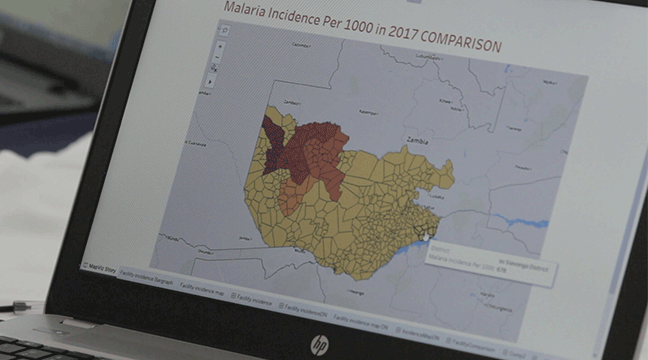At PATH, we believe that health is a human right. This belief is most embodied in the concept of universal health coverage—that is, where all people and communities have access to the health services of sufficient quality they need without financial risk. Healthy families can invest more in education and seize economic opportunities so that they can escape poverty, unleash greater prosperity, and build more resilient communities and nations. Health is the foundation of a safer, more just, and more prosperous world for all of us. It moves humanity forward.
It is increasingly clear that our collective success in achieving universal health coverage will be accelerated by digital tools and technologies. At PATH, we believe that digital health is neither a luxury nor a silver bullet. It is an essential ingredient for good health and a platform for ensuring equitable access to high-quality health care.
Digital approaches improve health care at all levels. For example, basic digital communication tools such as WhatsApp connect supervisors based in hospitals or clinics with health workers in remote locations so that communities are connected to the best health care options in real time. The same health workers can use new electronic immunization registries to track the children in their communities and ensure every child receives the full schedule of vaccines. And up-to-date and accurate data hosted in the cloud can equip policymakers with the information they need to allocate limited funding for the biggest health impact possible.
The future of digitally enhanced health care services and systems offers even more. Skye Gilbert, deputy director of PATH’s Center of Digital Excellence, envisions that the health systems of tomorrow—in both wealthy and low-resources settings alike—“will enable consumers to receive drugs and treatments tailored to their genetic profile, including personalized cancer treatment. They will also receive targeted health information specific to their environment, such as how to minimize air pollution exposure. And they will receive interventions customized to their cognitive and behavioral profiles, like rewards for exercising regularly.”

Vietnamese healthcare workers learning to use digital tools for data reporting and treatment adherence. PATH/Nguyen Phu Cuong.
We’re excited about this future and are proud of the impact our digital tools have already enabled:
- The Vietnamese government recently launched its National Immunization Information System, which builds upon a digital immunization registry and vaccine stock management tool developed by PATH that increased on-time vaccination rates while reducing the time and costs associated with routine immunization programs. Health workers can now create and search for immunization records on almost any device and send text reminders to families when a child is due for a vaccination.
- Visualize No Malaria brings PATH together with Tableau and other technology partners to help Zambia end malaria. Through this partnership, we are equipping health workers with the training, financial support, and tools—including data visualization software—they need to track malaria transmission in real time so that they can treat, prevent, and eliminate cases before they spread further.
We support digital health care because universal health coverage will be impossible without it. PATH and our partners, including leading health experts, private industry, and the countries and communities we serve, are leading the way to accessible affordable, and high-quality health care—unlocking better health for us all.


